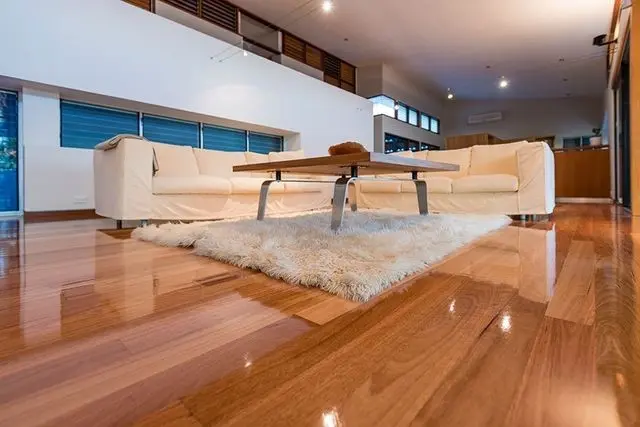Written by Zac Harrison
Airbnb rental yields can achieve impressive returns of 20% to 30%, making it an attractive option for property investors.
However, before assuming you can simply list a standard buy-to-let property and expect to double your portfolio income by switching to Airbnb, there are several critical factors to consider. In this comprehensive guide, I will highlight common pitfalls and share strategies to effectively navigate the competitive Airbnb market to maximize your rate of return.
Is my Airbnb profitability guaranteed?
No.
The profitability of your short-term rental depends on numerous factors, with location and seasonality among the most significant. In this guide, we will walk you through how to navigate these elements and select properties that have the potential to outperform the broader market.
Understanding the Airbnb rental market
It is essential to recognize the factors driving Airbnb’s growth. The rise of the sharing economy, empowered by convenience and flexibility, has revolutionized traditional hospitality.
Focus on experience
Modern travelers value unique, localized experiences over conventional hotel stays. They seek authentic accommodations that immerse them in the destination, which has expanded Airbnb’s market to accommodate diverse preferences and budgets.
Size
To stand out, your property should offer more than just a traditional hotel-style experience. Larger properties packed with unique amenities significantly enhance your Airbnb’s rate of return and help maintain competitiveness in the long term.
Factors that affect Airbnb return
Location
Location remains the primary driver of Airbnb rental income. Properties situated in sought-after neighborhoods, near popular attractions, or in high-demand areas typically command premium rates. Consider the accessibility, nearby amenities, and overall desirability when setting your rental price.
Seasonality
Airbnb rental rates fluctuate seasonally, with peak travel times attracting higher demand and increased rates. Understanding local seasonal trends enables you to adjust pricing strategically, maximizing revenue during busy periods and sustaining occupancy during off-peak seasons.
Weekday vs Weekend & Airbnb Rates
Day of the week also influences rental rates. Weekends and holidays typically experience higher demand, allowing hosts to charge premium rates. Conversely, weekdays might require more competitive pricing to maintain bookings. Monitoring booking patterns and adjusting your rates accordingly is key to optimizing occupancy and revenue.
Researching the local market and competition
Comprehensive research on your local market and competition is vital to maximizing your Airbnb returns. This insight helps you understand current trends, pricing strategies, and guest expectations within your area.
Look at your competition
Start by analyzing nearby Airbnb listings. Assess the property types, amenities, and pricing. Review occupancy rates and guest feedback of similar listings to identify your unique selling points and how your property compares to others.
Look at more than just Airbnb
In addition to Airbnb, examine other short-term rental platforms like Vrbo and HomeAway to gain a fuller picture of the local market. Compare pricing, availability, and guest preferences across these platforms as they may reveal insights that can refine your strategy. exploring
Use short-term rental software
Leverage data-driven tools such as AirDNA, which aggregate Airbnb data and present it through visual dashboards. This allows for informed decisions regarding your rental’s market positioning and pricing.
Managing guest reviews and feedback
Positive guest reviews are critical to the success of your Airbnb operation and maximizing your returns. Airbnb’s algorithm heavily favors highly rated listings.
To maintain maximum visibility, aim for an average rating of at least 4.8. Listings rated below 4.2 fall into the bottom 10%, whereas the top 20% of listings secure 50% of all Airbnb bookings.
Actively chase for reviews
Proactively requesting reviews from satisfied guests boosts your rating and attracts more bookings. Follow up with polite post-stay messages or consider offering incentives like discounts on future stays to encourage feedback.
Higher ratings not only improve your listing’s visibility but also justify premium pricing.
Look at guest feedback
Beyond formal reviews, monitor guest communications and social media comments for ongoing feedback. This information highlights strengths and areas for improvement, enabling continuous enhancement of your property and guest experience.
If you prefer a hassle-free approach to managing your holiday let property, contact us for expert advice on income optimisation, occupancy rates, and creating a turnkey investment. Airbnb management
For more information on Real Estate Investing in Florida: Markets, Strategies, and Loan Programs , please visit our Real Estate category.
Additional Insights: The short-term rental market continues to evolve rapidly, driven by changing travel trends and technological advancements. As competition intensifies, integrating smart home technologies, offering personalized guest experiences, and maintaining impeccable property standards are becoming vital for standing out. Staying updated on local regulations and tax implications is also crucial, as many cities have introduced stricter policies for short-term rentals. By combining market research, dynamic pricing tools, and exceptional hospitality, property owners can maximize profitability while ensuring compliance and guest satisfaction in 2024 and beyond.



